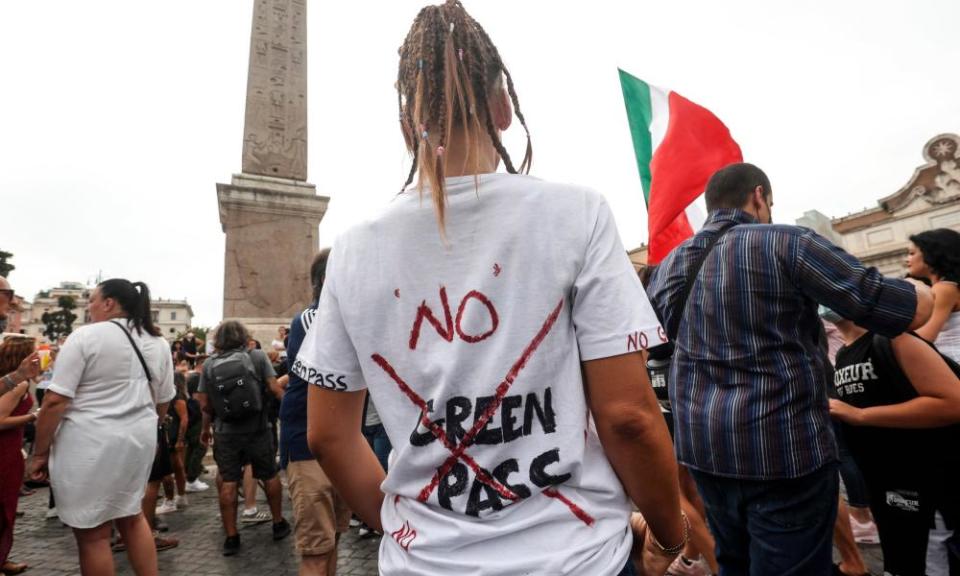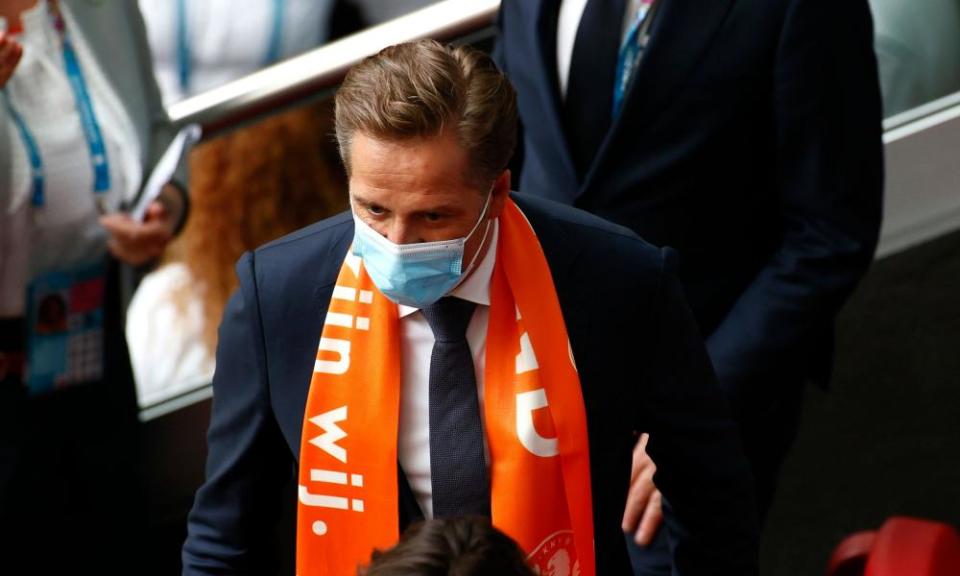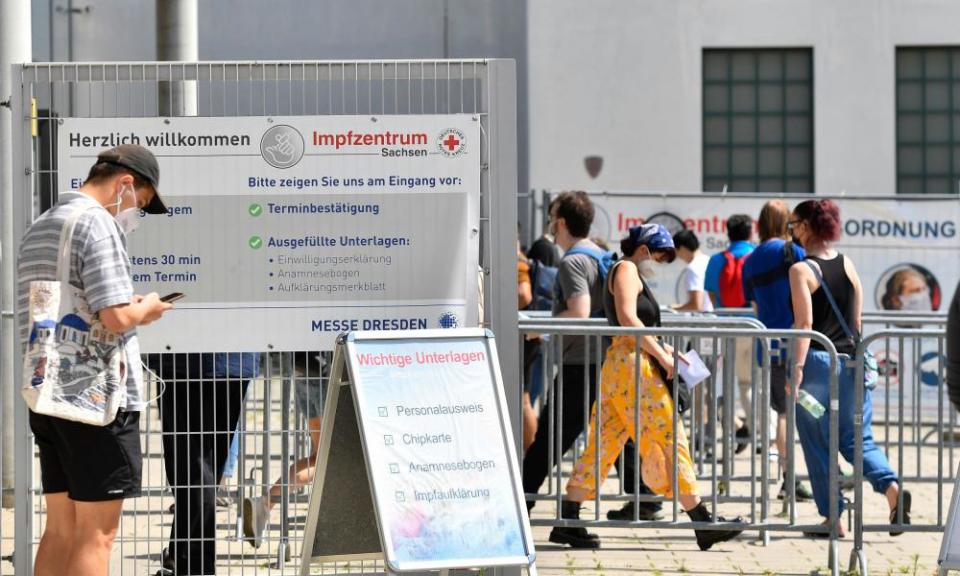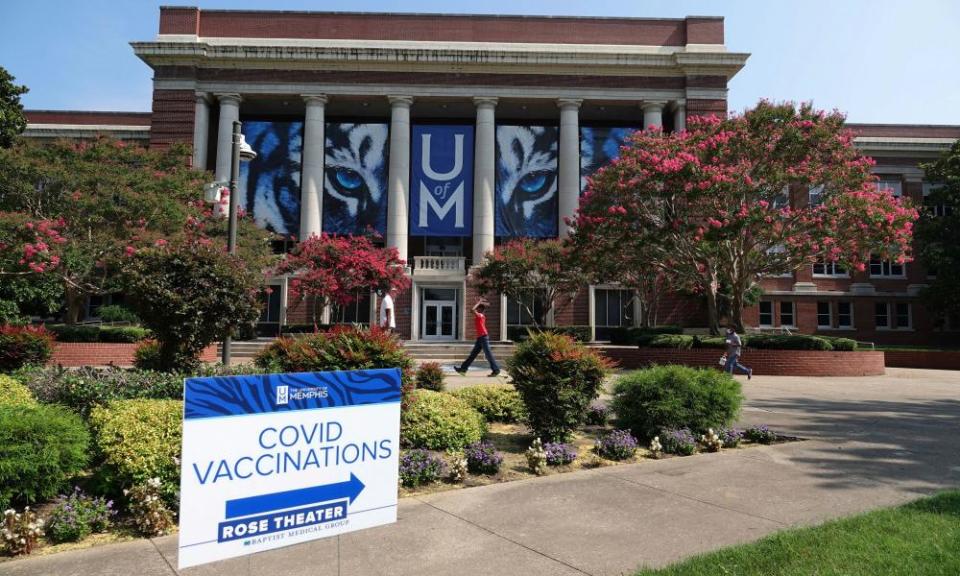Which countries are vaccinating minors against Covid?

The UK’s Joint Committee on Vaccination and Immunisation has recommended that Covid jabs be offered to all 16- and 17-year olds, while continuing to limit shots for 12- to 15-year-olds to the clinically vulnerable or those living with people at risk.
The move brings Britain more in line with the US and many European countries, several of which have gone further by opening up vaccinations to all over-12s and have already hit first-jab rates of 40% or more, while others are more cautious.
France
France began offering Covid vaccinations to all over-12s on 15 June and more than 2 million children, roughly 40% of the 12-17 age group, have so far received a first shot. The move has provoked bitter rows among some couples, prompting the government to drop a requirement for parental authorisation for older teenagers and, for 12- to 15-year-olds, to require the approval of only one parent.
From the end of September, younger teenagers will join the over-18s in needing a “health pass” – showing proof of vaccination or a recent negative test – to visit cafes, entertainment venues and public events, take a long-distance train or participate in organised sport.
“Imagine a blockbuster film with 400 teenagers in a cinema,” said the health minister, Olivier Véran. “It’s got to be the health pass, or outright closure.”
From the start of the new term, non-vaccinated secondary school children will also have to switch to remote learning if a pupil in their class tests positive.
Spain

Spain’s vaccination effort is led by its regions, so rates of adolescent vaccination vary widely, with more than 40% of 12-to 19-year-olds receiving at least one dose in some but only about 1% in others. Catalonia, for example, said only this week it would begin allowing 12- to 15-year-olds to book vaccine appointments.
The central government has said it would like to have adolescents vaccinated at least two weeks before the school year starts in September. Vaccine acceptance among the age group appears to be very high, according to Amós García Rojas, the head of the Spanish Association of Vaccinology.
But he warned of a “profoundly injust situation”, calling for “a balance between the vaccine rollout in developed countries and solidarity in providing vaccines to developing countries so all of this can end”.
Italy

Italy aims to vaccinate the majority of adolescents before the start of the new school year in September. The Pfizer vaccine was authorised for 12- to 15-year-olds in late May, with bookings across most regions beginning in July, and last week the Moderna jab was approved for 12- to 17-year-olds.
A communication campaign to boost take-up among adolescents has helped encourage almost 35% of 12- to 19-year-olds to get a first shot, with 18.62% having received both.
The move has caused little controversy: Fabrizio Pregliasco, a virologist at the University of Milan, said last week that children should be vaccinated from the age of two.
“They are also involved in the contagion chain and being vaccinated means that, as they get older, they will already be covered in case they get the virus,” he said. “In this way, by involving children and adolescents in the vaccination campaign, we will be able to reach herd immunity.”
The Netherlands

Starting with older teenagers, the Netherlands began offering shots to the over-12s early last month, with the decision of whether to accept left up to the child – although 12- to 16-year-olds are advised to discuss it with their parents. The health minister, Hugo de Jonge, said he hoped as many as possible would take up the offer to avoid schools having to close.
Sweden
Sweden started opening up appointments to minors only this month, and only to 16- to 18-year-olds, with all 21 healthcare regions to follow “during the coming months”. Children aged 12 to 16 are so far only eligible under special conditions such as belonging to a risk group or living with people at risk.
Germany

The debate is more heated in Germany, where the health minister, Jens Spahn, said this week children and teenagers would soon be able to “decide to get vaccinated … and thus protect themselves and others”.
The country’s standing committee on vaccination, Stiko, however, has so far only explicitly recommended jabs for 12- to 17-year-olds if they are at risk, citing insufficient data on possible long-term effects. So far 20% of the 12-17 cohort have had at least one shot and nearly 10% are fully vaccinated.
Ruth Stein, who has three children aged five to 14, said politicians were “putting unnecessary pressure on parents ahead of the new school year, to get their kids vaccinated or else be accused of being selfish … Kids do not generally get bad coronavirus, and they should not have to be vaccinated to protect the rest of society.”
Others are impatient: one father said he had not hesitated to have his two boys, aged 12 and 13, vaccinated last month, though he had struggled to find a doctor willing to do so. “It’s always more advantageous to have the vaccine and avoid the illness,” he said. “There is little evidence to back up fears of long-term effects, despite all the social media noise.”
United States

In the US, about 40% of 12- to 17-year-olds have had at least one vaccine dose. Take-up was initially strong, with about 600,000 adolescents receiving their first jab in the week after the Pfizer/BioNTech shot was authorised for 12- to 15-year-olds, but has slowed after reports linked the vaccine to rare occurrences of myocarditis, or inflammation of the heart muscle, in young people.
It has also fallen prey to the country’s politicised climate: Tennessee’s health department made headlines after a backlash by some legislators resulted in all adolescent vaccine outreach being halted.
The Centers for Disease Control continues to recommend all over-12s be vaccinated. “When I see states around the country and some governors saying they’re not going to promote vaccines for these kids, that I find extremely discouraging, because there is the opportunity to protect those children and those people who have contact with those children,” its former acting director Richard Besser told CNN.

 Yahoo News
Yahoo News 
